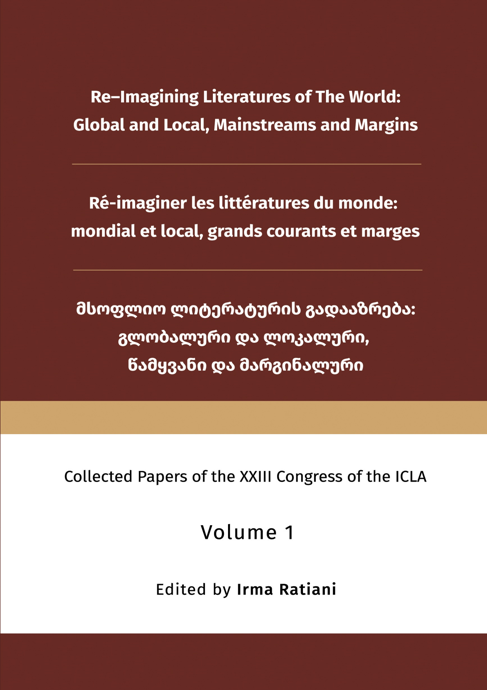The Influence of Manchuria Experience on Abe Kōbō`s Post-war Novels
Main Article Content
ანოტაცია
Abe Kōbō is a prominent Japanese writer with international influence. He is often described as "mukokuseki," meaning stateless or without a national identity. Throughout his career, Abe was involved in various artistic groups such as Yoru-no-kai, Shimoma-ruko-bunka-syuudan, and Genzai-no-kai, to name but a few. The ideology of his pioneering work also shifted from existentialism to surrealism and communism. As a result, many scholars have attem-pted to capture consistent themes in the work of such a stateless and ever-changing writer. O'Michon (2010), for example, rationalizes the use of Abe's colonial experience to explain his post-war texts, and Kim Hyun Hee (2009) reveals the issue of 'home' in Abe's literature. And this essay attempts to describe how the colonial experience in Manchuria is at the root of the theme of hometown that runs through Abe's novels.
The hometown influences the customs, perceptions, and history of the native people and shapes the identity of the indivi-dual. However, while everyone has a hometown, the opposite phe-nomenon – "homelessness" – also exists, derived from the serious problems of migration and ethnic minorities generated by impe-rialism. For Abe, and many others who suffered the migrations and dislocations caused by colonialism in modern history, the model that "hometown" equals the "birthplace" does not apply. From this perspective, Abe Kōbō, who lived in China, which was invaded in World War II, and Japan, which was the aggressor, expresses in his work a special reflection on the question of "hometown" and "homelessness".
Manchuria or Man-chou is an exonym for a historical and geographical region in Northeast China today. It was here that Japan, through a combination of the Kwantung Army and the South Manchurian Railway Company, established the puppet state of Manchukuo. As early as after the Russo-Japanese War, campaigns to attract immigrants to Manchuria were publicized in Japan. Abe Kōbō was one of them. He experienced both advanced urban life and post-war anarchy, and his early memories induced a deeper reflection on his dual identity. This essay examines Abe's writing on the Manchurian experience, including the colonial experience, the return experience, the urban experience, and the post-war expe-rience; and analyses how Abe's colonial experience in Manchuria influenced his view of his "hometown", demonstrating a post-war writer's struggle with his own colonial experience.
